
We all love attention of our loved ones and want them to do , unconventional things for us to make us feel special.In love people say ,”there are no wrong or right, it’s just love”, this statement itself is false. Love or any emotion has it’s own boundaries and most importantly consent. Without consent you cannot make someone feel any of the emotion which they don’t allow in their spaces.
We all have felt those enormous feelings and what we shouldn’t feel is extreme fear, heart throbbing and that blackmailing,surprise attack which comes with ,”stalking”. Those who have gone through this knows how scary and dangerous it is and how it should be not normalised and how it makes life hell. Let’s unwind with me the insights of ,”stalking” how a stalker’s brain works, and how we can get out of this associated extreme nail biting fear.Just save yourself like we have done and read, find out with me ,let’s dig deeper together….
STALKING

Stalking is the ongoing pursuit of a specific person without their consent. Examples of stalking behavior include following someone, waiting outside their house, and spying on their activities.
Stalking is when a perpetrator pursues or watches someone without their consent, Even if a person is not aware of the stalking, or they have not explicitly told the perpetrator to stop, the behavior is still stalking. This is because it is still taking place without consent, which makes it abusive.
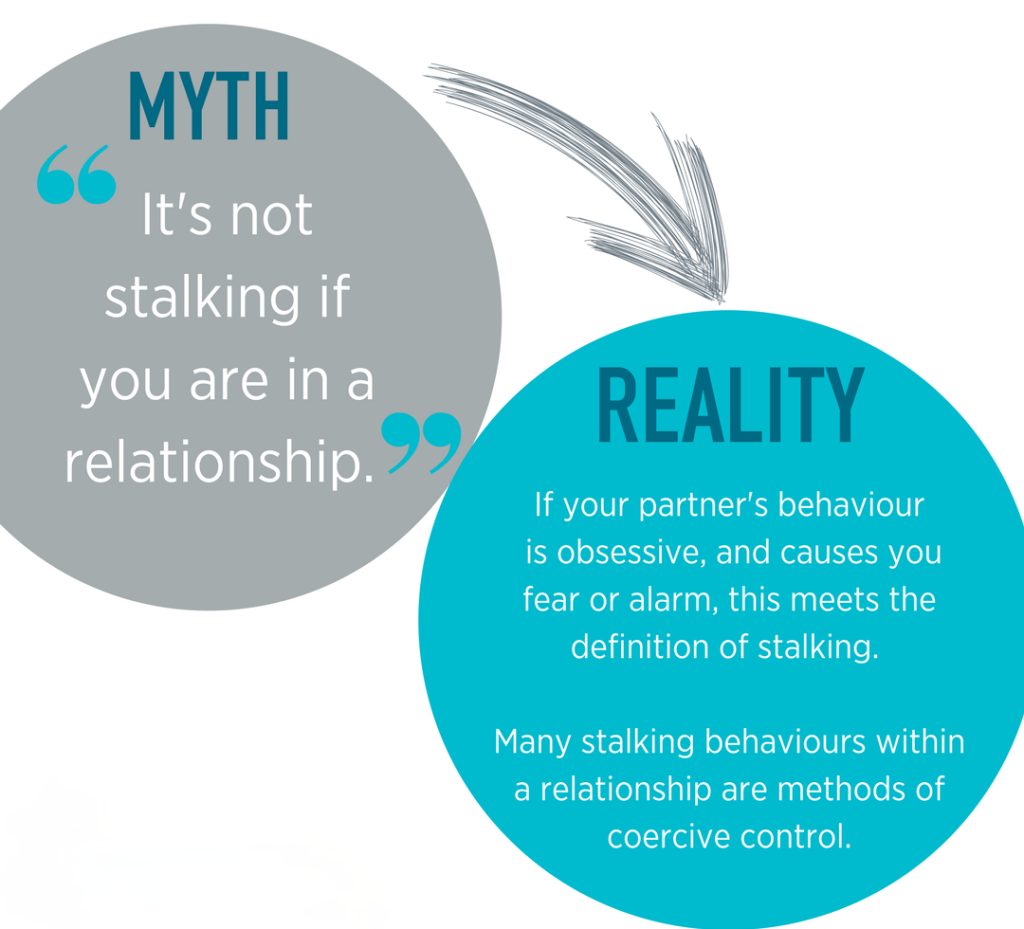
Some examples of stalking behavior include:
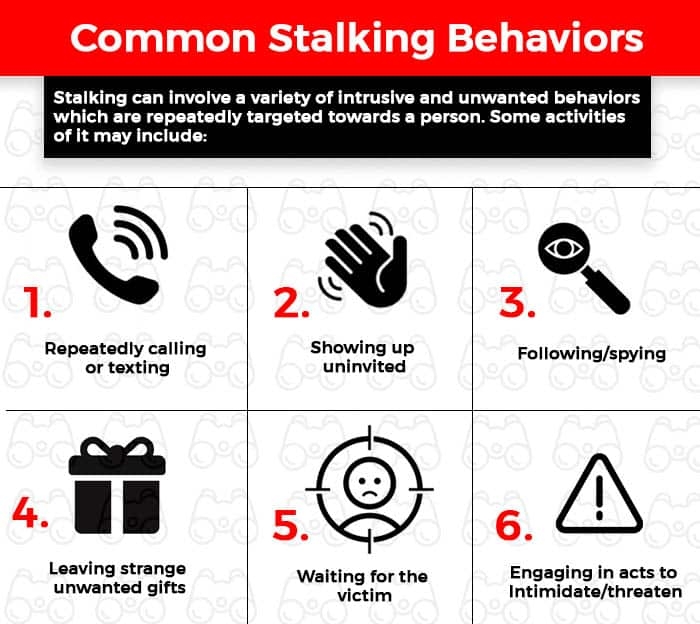
- Love obsessional: In this type of stalking, the perpetrator is a stranger or casual acquaintance and starts using stalking behavior to get someone to notice them.
- Erotomania: This mental health condition causes a person to incorrectly believe someone is in love with them. They may be convinced the relationship is “meant to be,” which leads to stalking.
- False victimization: This is a rare cause of stalking in which a person believes someone has been targeting them, but they are actually the perpetrator doing the stalking.
- following a person as they go about their daily tasks
- waiting for them outside their house
- visiting places they often go to spy on them
- attempting to get into their home or workplace
Stalking can occur with or without harassment. Harassment is repeated and unwanted attempts to contact a person. This could be via:
- in-person threats, bullying, or intimidation
- texts or phone calls
- email or social media
- letters or notes
- unwanted gifts
- unscheduled visits
Stalking and harassment can escalate to physical violence.
TYPES OF STALKING
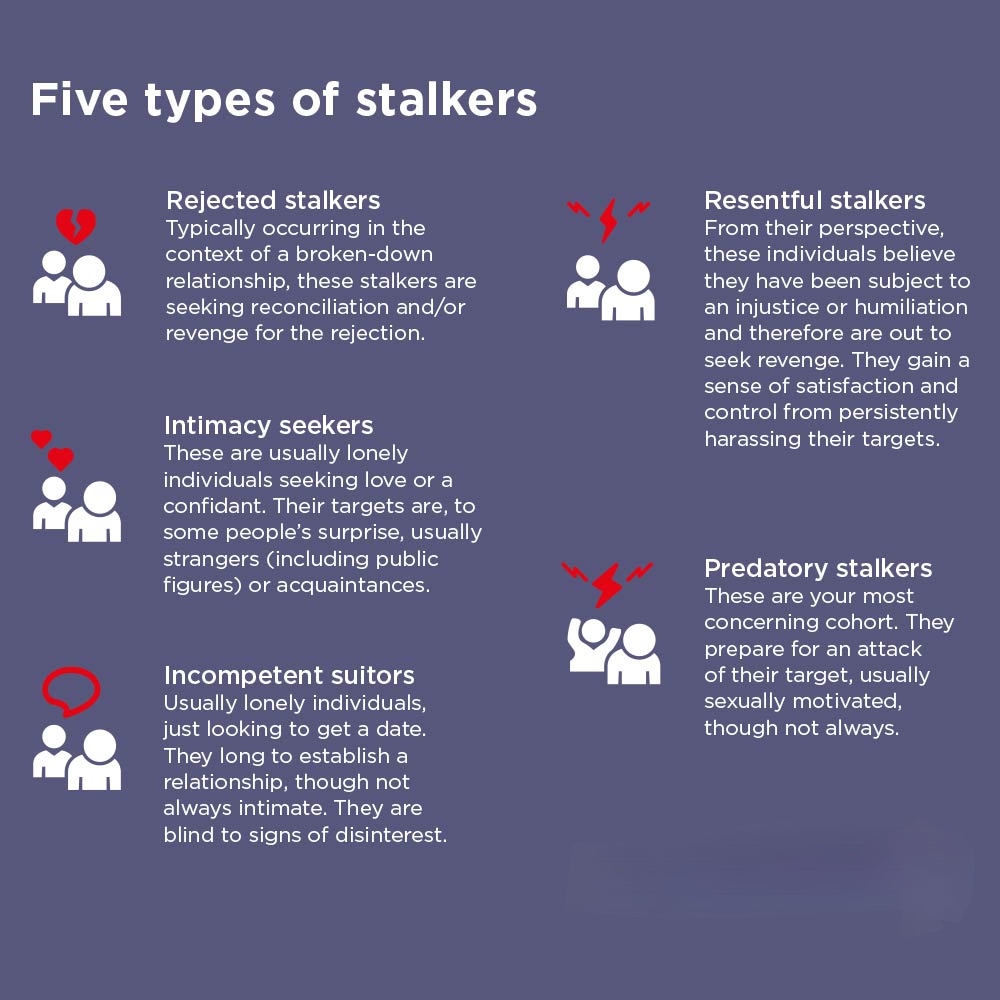
There are different ways to categorize stalking. One way is to classify it by motivation.
According to the National Center for Victims of Crime, simple obsessional stalking is the most common form of stalking. It is when a person stalks an ex-partner or ex-employer. Often, this is because they feel wronged or rejected.
Some other motivations for stalking include:
Different legal systems can also categorize stalking in different ways, such as how it manifests or its severity
The signs of stalking

Some signs a person may be experiencing stalking include:
- repeatedly noticing a person hanging around outside the home or workplace
- seeing them take undue interest in what is going on inside, such as by peering through windows or taking photos
- being followed or watched by someone in their car
- noticing the person or their car in other places, such as en route to work or at the grocery store
- receiving mail that has already been opened
- receiving notifications that another person has tried to access online accounts or reset passwords
- observing signs that someone has tried to break into the home
- personal items or trash going missing
In some cases, a person who is stalking an individual may also stalk friends, family, or neighbors to gain more information. It may be worth asking if anyone else has noticed these signs.
Warning signs
Some potential early warning signs of stalking in relationships include:
- knowing personal information about someone without having to ask for it
- trying to read a person’s texts or emails
- asking a lot of questions about a person’s whereabouts, who they spend time with, and their relationships
- frequently messaging, emailing, or phoning them
- trying to flirt or pursue a romantic relationship even though the person has said no
- turning up unannounced
Some people may view these behaviors as romantic, but they reflect a lack of regard for consent, which can be problematic. In some cases, these behaviors may be a precursor to controlling or abusive behavior.
Impact of stalking
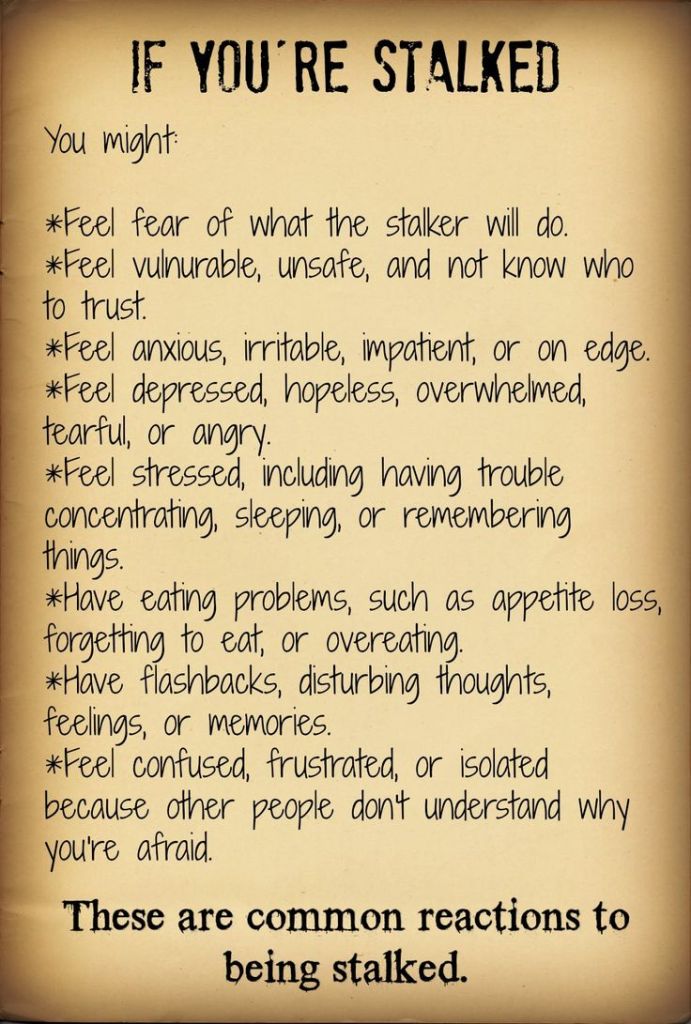
In terms of the effects, the nonprofit Action Against Stalking states stalking can:
- make a person feel on edge or anxious
- cause low mood or depression
- cause post-traumatic stress disorder (PTSD)
- affect a person’s ability to concentrate
- make them late for work or school
- cause insomnia, headaches, or other physical symptoms
- affect finances due to expensive upgrades in security
- cause them to relocate to feel safe
Impacts :
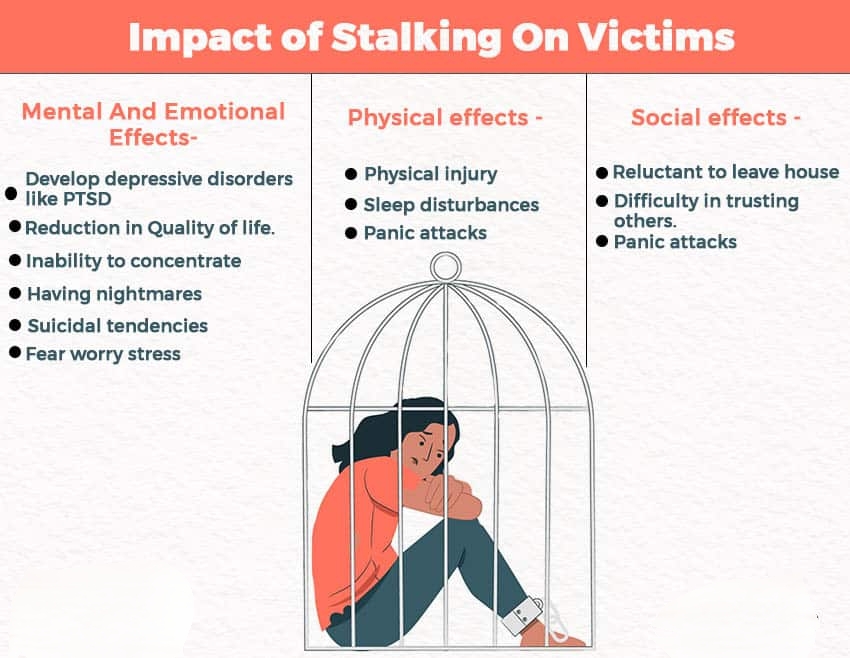
Who does stalking affect?
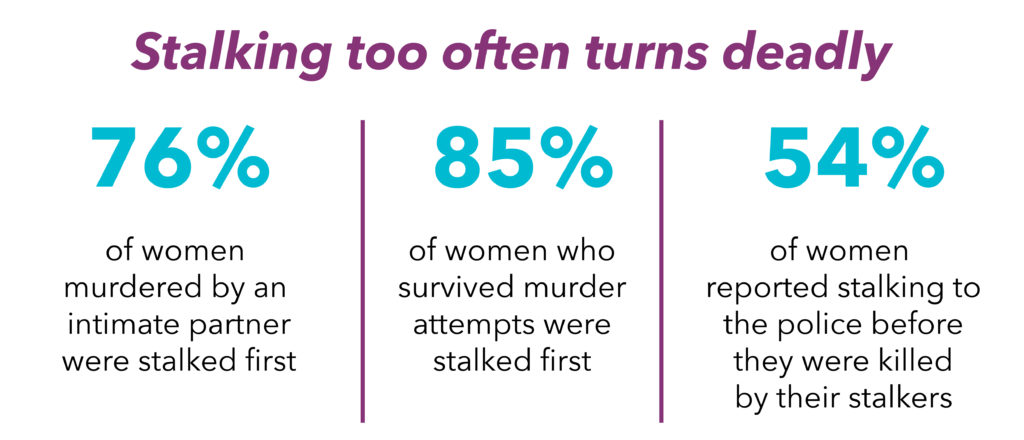
Stalking disproportionately affects women. A 2022 study found that most stalking perpetrators are men, while most who report stalking are women.
Researchers also found that one-third of people who stalk eventually assault their victim. Among women whose ex-partner is stalking them, this increases to half.
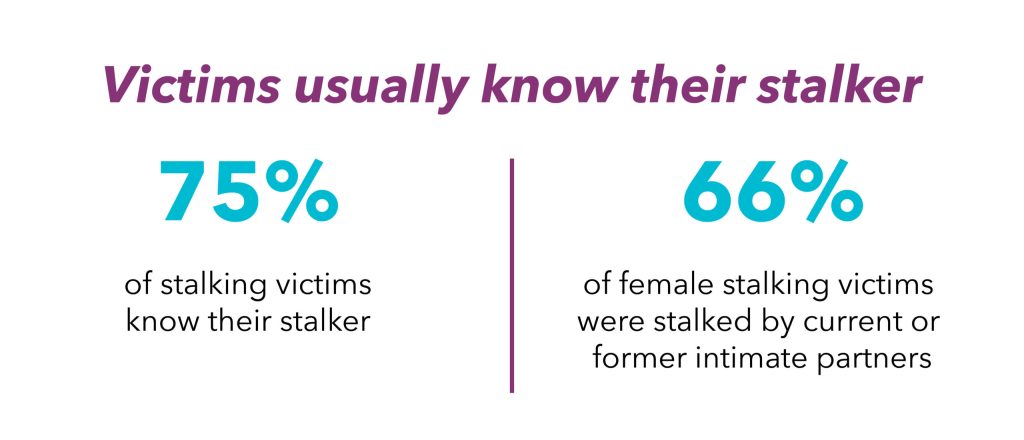
Is stalking a crime?
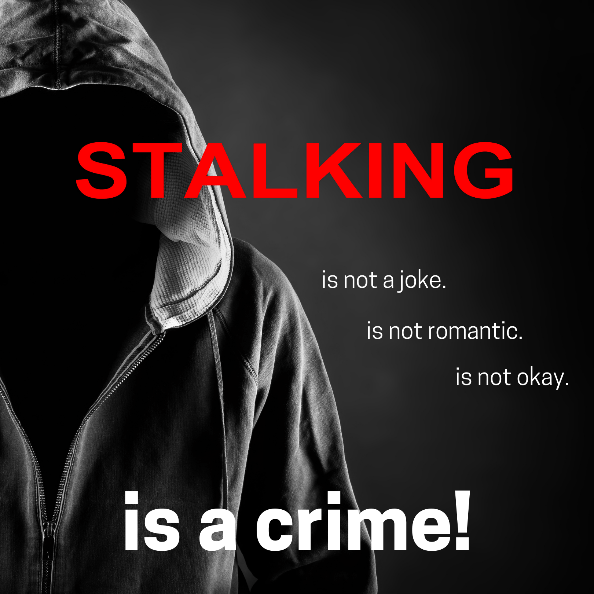
Stalking is a federal crime when a person crosses state lines, enters or leaves Native American land, or stalks on federal property.
Individual states have their own laws about stalking that takes place within the state. The exact definition of stalking can vary, though. Some states may require that:
- the perpetrator has specific motivations or intent
- the person experiencing stalking has a certain level of emotional distress
- the person experiencing stalking is in physical danger
People may benefit from speaking with a victim support organization or a lawyer to understand local legislation.
A single unwanted contact is not stalking. However, it could be another crime. For example, opening or destroying mail for someone else is a crime, as is:
- trespassing
- breaking and entering
- theft
- harassment
Some people report having difficulty getting the police to act. Police may sometimes underestimate the impact or danger of stalking.
Sexism can play a role in people not taking stalking seriously. A 2020 study with college students found that people who had sexist beliefs were more likely to minimize the impact of stalking and to blame the victim.
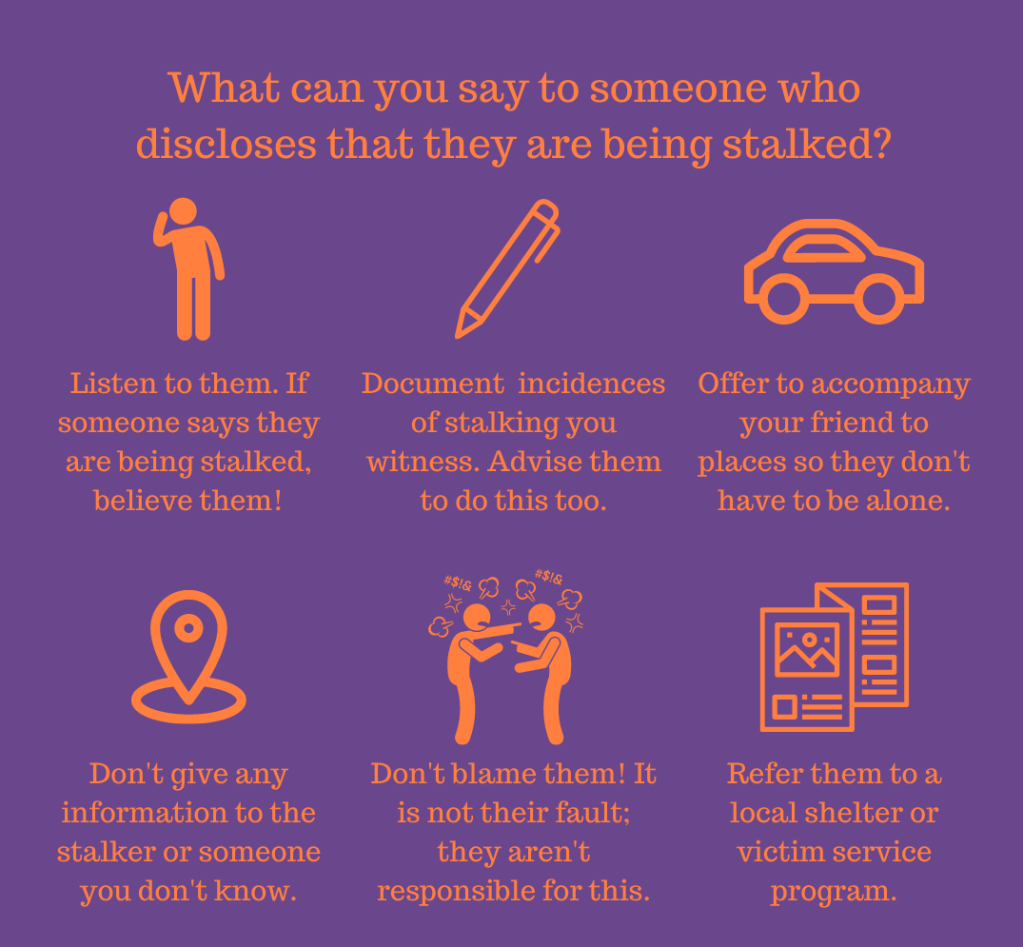
What to do about stalking
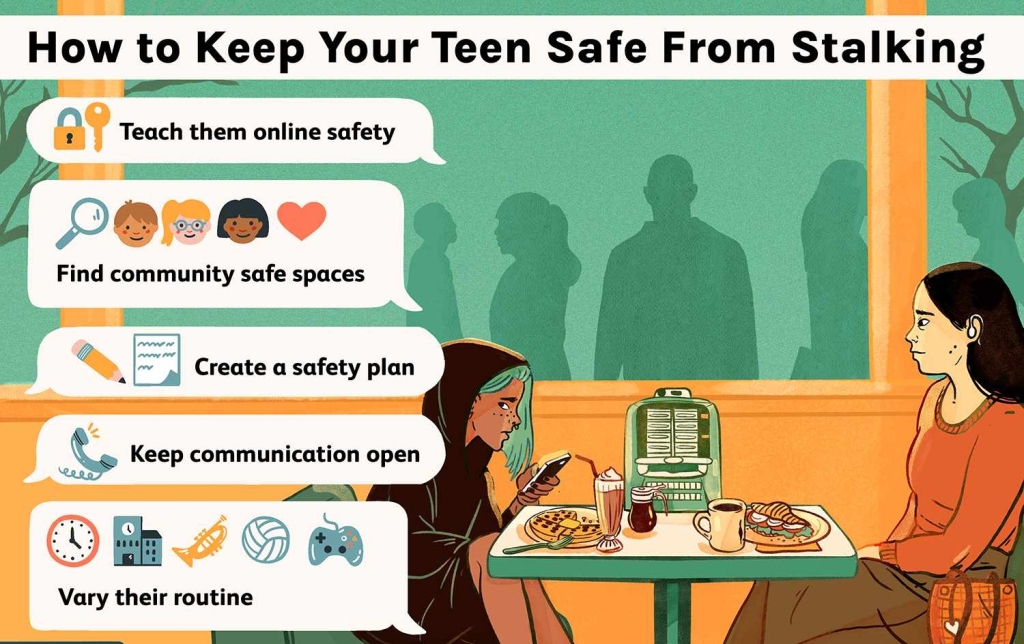
The priority for people experiencing stalking is their safety.
If a person is currently safe, they can then begin taking steps to increase security, such as:
- stopping all contact with the perpetrator
- always locking doors, windows, and cars
- installing deadbolts, home alarms, or motion sensor security cameras
- telling trusted friends, family, neighbors, and co-workers about the stalking
- notifying the security department of a person’s place of work
- if children live in the house, notifying their school
- avoiding walking or going places alone
- removing addresses and phone numbers from directories
- using an answering machine to screen calls and record any messages
When telling others about the stalking, it is a good idea to provide the perpetrator’s name, a physical description, and a photo of them, if possible. Tell the person what to do if they show up or try to make contact.
For digital security, people can also:
- update all passwords on all devices
- use two-step authentication whenever possible
- set all online accounts to private
- remove and block the perpetrator on social media
- only allow followers they personally know to see their posts
- uninstall any unfamiliar apps or software
- remove phone numbers from directories
Documenting the stalking is also advisable. It shows how frequent and how serious the behavior is. People can:
- keep a diary of the stalking with dates and times
- take photographs, as long as it is safe to do so
- save security camera footage
- take screenshots of conversations
- save letters or voice notes
Causes of Stalking
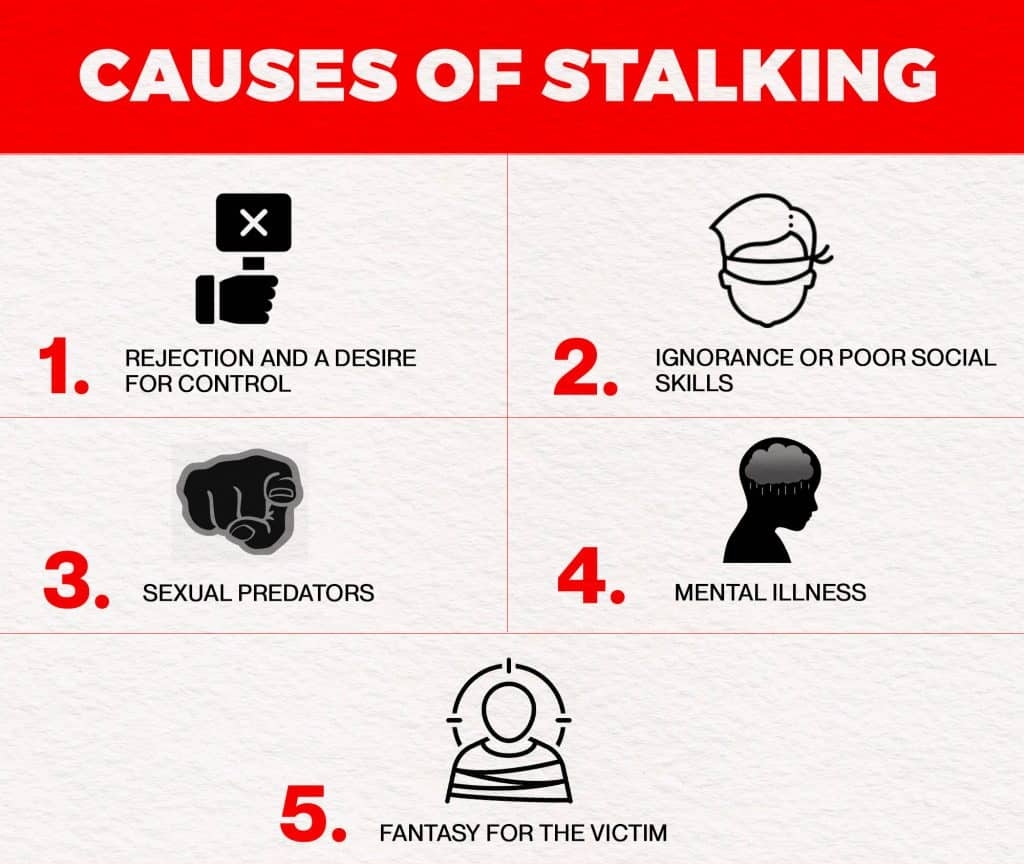
The Psychology of the stalker

To understand the Psychology behind a stalker , I recommend above series ,though it’s a fiction series but you can get an insight how a stalker thinks of himself and how we fall for them. (You can watch it just to get an insight it’s not entirely true for a stalker in ther series but an idea for the same)
Anyone has the potential to become a victim. Although superstars like Madonna and David Letterman are more likely to make headlines when they are harassed by deranged strangers, the great majority of victims are regular individuals who knew their stalkers, typically as lovers or spouses.
The majority of stalkers have severe personality disorders. The most common one among stalkers is narcissistic personality disorder, which gives stalkers an exaggerated feeling of self-worth and an obsessive desire for other people to admire and revere them.
Extreme dependence, in which a person needs constant help, attention, and acceptance from others, and borderline personality disorder, in which a person has unpredictable emotions and a high sensitivity to rejection and abandonment, are two more personality disorders that experts often see in stalkers.
According to Cupach & Spitzberg (2004), there are eight clusters of distinguishable stalking behaviors:
Hyper intimacy,
Cyber stalking,
interactional contacts,
surveillance,
invasion,
harassment and intimidation,
coercion and threat,
aggression
HOW STALKERS USE MANIPULATION TO FEED THEIR OBSESSION

Manipulation is one of the best ways for a stalker to get what they want, especially when dealing with an ex-partner. Some typical techniques a stalker could use to draw you back are described below.
They will use guilt or create a crisis to get you to feel sorry for them. Such as, “Why are you doing this to me?” How could you not worry about me?
They make empty promises to keep in contact. Example: “This is the last time, I swear.” I just need closure. “
They will resort to blackmail. Here’s an example: “I’ll let your employer know about that time you called in sick.”
They play on your vulnerabilities and make unfounded accusations. For instance “You don’t care about anyone but yourself.”
They will distort what you say to fit their purposes. “I know that your friends are only trying to brainwash you against me because I know that you truly do love me.”
They will offer extravagant or costly presents with strings attached. “After all I’ve done for you…or how can you treat me this way after I have been so kind to you”
CONCLUSION

How difficult it is to survive this, but YOU CAN and there are just two options to get over this either to struggle with it and follow the lead of stalker in a loop and cry alone or be courageous to get out of it fully and communicate with someone who can help you and understand your perspective and fight back against it. Save others too for becoming a prey for stalker. More power to you 🙌🙌🙌We are in this together,you are not alone.You can cry and you can have this grief and trauma but still you can fight and WIN ,always 🌟
– by Cheenu Singh Sisodiya
(Psychologist)

Thank you for this important article. Stalking is frightening behavior.
LikeLiked by 1 person
True , it’s horrifying.
LikeLiked by 1 person
Thankyou for your appreciation and giving it a read 😇
LikeLiked by 1 person
Thankyou 😇
LikeLike